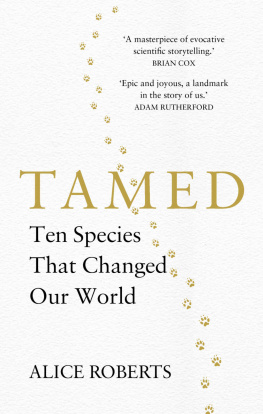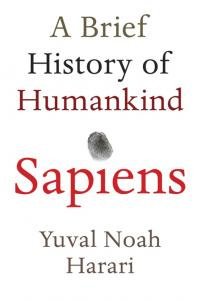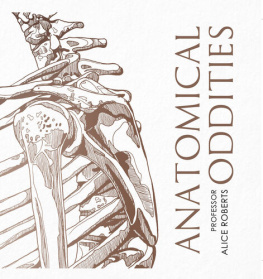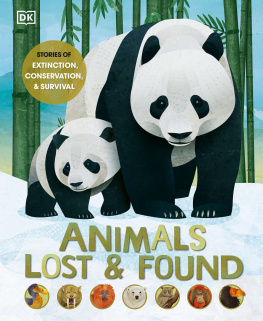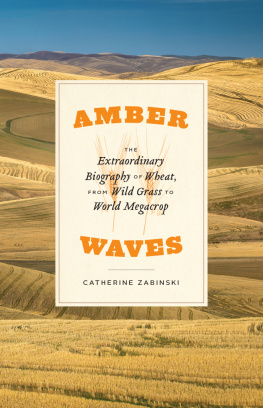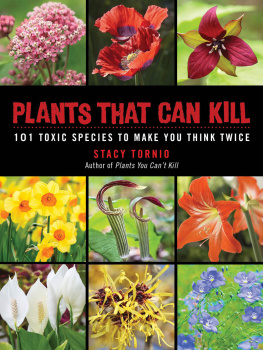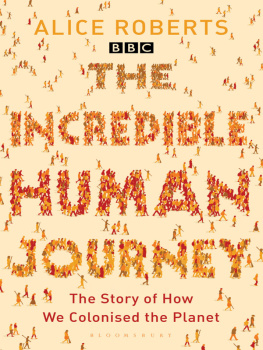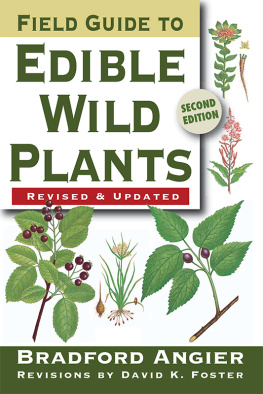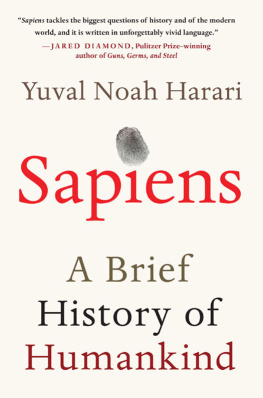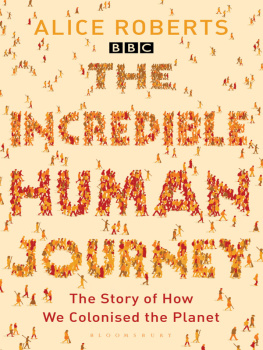Contents
About the Book
The extraordinary story of the species that became our allies.
For hundreds of thousands of years, our ancestors depended on wild plants and animals for survival. They were hunter-gatherers, consummate foraging experts, taking the world as they found it. Then a revolution occurred our ancestors interaction with other species changed. They began to tame them. The human population boomed; civilisation began.
In Tamed, Alice Roberts uncovers the deep history of ten familiar species with incredible wild pasts: dogs, apples and wheat; cattle, potatoes and chickens; rice, maize and horses and, finally, humans. She reveals how becoming part of our world changed these animals and plants, and shows how they became our allies, essential to the survival and success of our own species.
Enlightening, wide-ranging and endlessly fascinating, Tamed encompasses thousands of years of history and archaeology alongside cutting-edge genetics and anthropology. Yet it is also a deeply personal journey that changes how we see ourselves and the species on which we have left our mark.
About the Author
Alice Roberts is an anthropologist, writer and broadcaster, and is currently Professor of Public Engagement in Science at the University of Birmingham. She has presented several landmark BBC series including The Incredible Human Journey, Origins of Us, Coast and The Celts. Her latest book on evolutionary biology, The Incredible Unlikeliness of Being, was shortlisted for the Wellcome Trust Book Prize in 2015.
www.alice-roberts.co.uk
Also by Alice Roberts
Dont Die Young: An Anatomists Guide to Your Organs and Your Health
The Incredible Human Journey
The Complete Human Body
Evolution: The Human Story
The Incredible Unlikeliness of Being: Evolution and the Making of Us
The Celts: Search for a Civilisation
To Phoebe and Wilf, who love the wild places
Introduction
HEAR and attend and listen; for this befell and behappened and became and was, O my Best Beloved, when the Tame animals were wild. The Dog was wild, and the Horse was wild, and the Cow was wild and they walked in the Wet Wild Woods by their wild lones
Rudyard Kipling, The Cat That Walked By Himself
For hundreds of thousands of years our ancestors existed in a world where they depended on wild plants and animals. They were huntergatherers consummate survival experts, but taking the world as they found it.
Then the Neolithic Revolution happened at different times, and in different ways, in different places but across the globe, those hunter-gatherers were changing how they interacted with other species in a crucial fashion. They tamed those wild species and became herders and farmers. The domestication of plants and animals would pave the way for the modern world allowing the human population to boom, and the first civilisations to grow up.
By uncovering this deep history of familiar species, well discover just how important those plants and animals were and are to the survival and success of our own species. These others have teamed up with us, and are now found right around the world, and have changed our lives immeasurably. Well dig back in time to trace their sometimes surprising origins. But well also find out how becoming part of our world changed those plants and animals, as we tamed them.
The origins of domesticated species
When the Victorian scientist Charles Darwin set about writing On the Origin of Species the foundation stone of evolutionary biology today he knew he was about to drop a bombshell and not just into the world of biology. He understood that he had to prepare some serious groundwork before he leapt into explaining his extraordinary insight into how species changed over time, through the unthinking action of natural selection, working its magic, generation by generation. He needed to bring his readers along with him. Theyd be climbing a mountain together; it would be fraught with difficulty, but the view from the top would be stupendous.
And so Darwin refrained from jumping straight into explaining his revelation. Instead, he devoted an entire chapter a whole twenty-seven pages in my edition to describing examples of species evolving under the influence of humans. Within a population of plants or animals, there is variation and its by interacting with that variation that farmers and breeders are able to modify breeds and species, generation by generation. Over hundreds and thousands of years of humans promoting the survival and reproduction of some variants, and limiting the success of others, our ancestors had wrought change in domesticated species and strains, moulding them until they more neatly fulfilled human needs, desires and tastes. Darwin called the effect of human choice on those domesticated species artificial selection. It was an idea that he knew his readers would be familiar and comfortable with. He could describe how selection by farmers and breeders picking out particular individuals to breed from, discarding others would, over generations, produce small changes, and that these changes would accumulate over time so that sometimes diverse strains or subtypes would emerge from a single, ancestral stock.
In fact, this gentle introduction to the power of selection to wreak biological change wasnt just a literary device. Darwin had set out to study domestication himself, because he believed that it could cast light on the mechanism of evolution more generally on how wild plants and animals could become gradually modified. He wrote, it seemed to me probable that a careful study of domesticated animals and cultivated plants would offer the best chance of making out this obscure problem. Nor, he added, almost with a glint in his eye, have I been disappointed.
After discussing the effects of artificial selection, Darwin could then go on to introduce his key concept of natural selection as the mechanism behind the evolution of life on the planet, the unthinking process that would, over time, propagate modifications and grind out not just new strains but entirely new species.
Reading his book today, the word artificial trips us up. Firstly theres the other meaning of artificial where its synonymous with fake. That wasnt the sense in which Darwin was applying the word; he meant artificial as in by artifice. But even then, theres a knowingness implied by this word which overplays the role of conscious intent in the process of domestication of species. Modern plant and animal breeding may be carried out with careful, deliberate aims in mind, but the earlier history of our liaisons with the species that have become our major allies reveals a shocking lack of any planning.
So we could try to come up with a new word for artificial, but theres another problem. Given that we now accept the fundamental role of natural selection in evolution, given that Mr Darwin doesnt need to persuade the majority of us of this biological reality do we actually need a separate description for the way that humans have affected the evolution of domesticated species?
Describing artificial and natural selection separately helped Darwin to build his argument, and to introduce a challenging, new idea, but the distinction is actually false. It doesnt really matter that its us humans rather than the physical environment or other species that are mediating the assortment of individuals into those more or less likely to successfully reproduce. You wouldnt make this distinction for any other species. Take the selective pressure exerted by honeybees on flowers which leads to changes in those flowers over time, making them more attractive to their pollinators. The colours, shapes and scents of flowers are not designed to delight our senses they have evolved to entice in their winged allies. Have the honeybees been effecting artificial selection? Isnt this just bee-mediated natural selection? Perhaps, when it comes to our own influence on domesticated species, instead of artificial selection its better (although, admittedly, slightly clunkier) to think of it as human-mediated natural selection.

